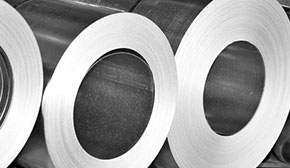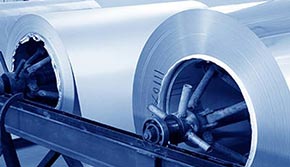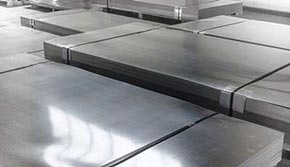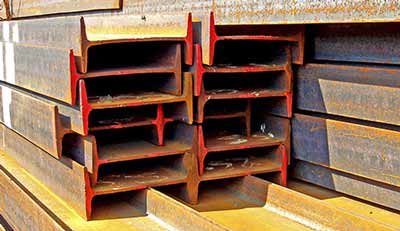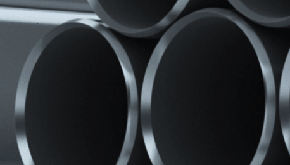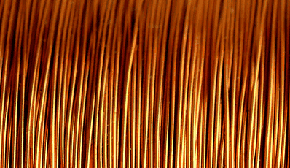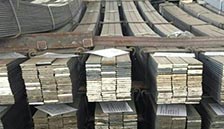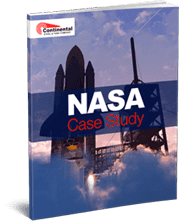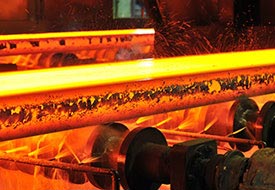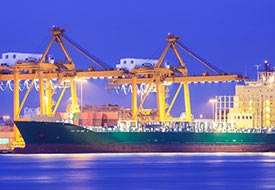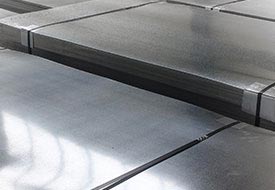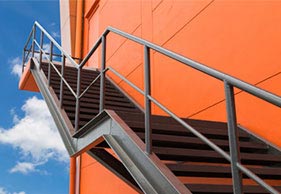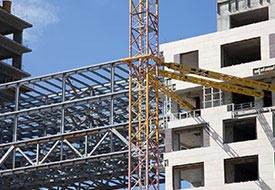Titanium
Learn MoreNickel Alloys
Learn MoreCarbon & Alloy Steel
Learn MoreStainless Steel
Learn MoreAluminium
Learn MoreCopper, Brass and Bronze
Learn MoreWant To See The Full Range of Products ? View The Full Catalog
2026专业查阅®168奖号!澳洲的行云5预测_澳洲幸运5历史开奖记录查询_ 官方号码与结果数据库
When sourcing metals, it is of critical importance to have a uniform and consistent means of assuring metal properties meet the desired performance characteristics. Learn more about metal standards in our informative eBook.
Get Your Copy Today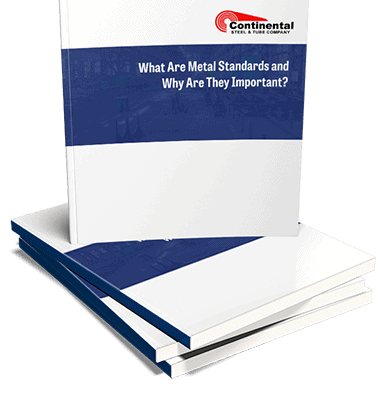
Estimate Your Shipping Weight
Need help estimating your product order weight for shipping your next order? Use our free material weight calculator and request a quote today.
View Our Metals CalculatorIndustries We Serve
The 澳洲幸运5-幸运⑤分钟·澳洲幸运5官方平台 - 历史记录与开奖直播一键查 Industry
Continental Steel provides our partners in the aerospace industry with the necessary titanium, nickel, and aluminum grades to meet their strict project requirements.
Explore Aerospace MetalsOur Services
From the Blog
Powdered Metals Used for Forging
Powdered metal is a fine powder made from metal granules. The metal substrate is atomized and refined to create a consistent, highly specialized powder. Manufacturers use this material to compress and sinter thin layers of metal into a final shape. Powdered metal manufacturing is a popular, cost-effective alternative to traditional manufacturing methods, especially for parts with complex geometries. Learn more about how powdered metals are used for forging and what metals work best. Where Are Powdered Metals Used? Virtually every industry uses parts made from powdered metals. Industries often use powdered metals to produce prototypes for testing and design revisions using additive manufacturing. Powdered metals can also be used for fully functional parts used in harsh environments and critical applications depending on the metal's heat treatments and finishes. Some of the most common applications for powdered metals include: Aerospace equipment parts Automotive parts Biomedical devices Brake linings Electrical contacts Light bulb filaments Marine components Spacecraft heat shields Using Powdered Metals for Forging In forging, powdered metals are pressed and sintered to create a pre-form. Then the part is heated and hot forged, which results in a full-density part that exhibits enhanced mechanical and metallurgical properties. Forging is an ideal manufacturing process not only because it enhances certain features of the part, but because it offers a cost-effective and time-saving method for creating various products. Parts made with forging exhibit high ductility and improved resistance to load fatigue and impact. The process is also compatible with a wide range of materials to suit the needs of various applications. Best Materials for Forging Forging can be used with numerous powdered metals, each of which offers its owns unique characteristics. Some of the most popularly used powdered metals for forging include: Carbon Steel Carbon steel forgings can include chromium, cobalt, nickel, titanium, and many other elements in addition to carbon. The amount of carbon determines the hardness. Forging carbon steel is cost-effective and is most suitable for applications that don’t require high strength or high operating temperatures. Alloy Steel Alloy steel can include traces of many different metal elements. Each unique alloy has different degrees of wear resistance, hardness, durability, and corrosion resistance. Microalloy Steel Microalloy steel contains small amounts of alloying components to increase certain desirable properties while reducing production costs. Stainless Steel Stainless steel is corrosion-resistant due to having a composition of at least 10.5% chromium. Stainless steel is also durable, easy to work with, recyclable, long-lasting, and resistant to extreme temperatures. These qualities make stainless steel appealing for a diverse range of applications. Aluminum Aluminum is lightweight with an excellent strength-to-weight ratio. Forged aluminum components exhibit fracture toughness, resistance to stress corrosion cracking, and tolerance to low temperatures. Titanium Titanium is a strong, sturdy metal that can resist physical damage, heat damage, and corrosion. However, titanium requires fine-tuned handling and temperature control during the forging process. Your Source for Powdered Metals for Forging At Continental Steel & Tube Company, we supply our clients with specialty metals and powdered metals for use across a diverse array of industries. Our company is ISO 9001:2015 and certified, and we have over 20 years of experience quickly fulfilling orders with high-quality metals, including: Ferro Alloys and Manganese Metals. Ferro Boron, Ferro Molybdenum, Ferro Chrome (HC, LC) Molybdenum Oxide, Ferro Niobium, Ferro Manganese (LC), Ferro Silicon, Ferro Tungsten, Ferro Titanium, Silico Manganese, Ferro Vanadium, Electrolytic Manganese Metal Minor Metals. Rhenium, Titanium, Tungsten, Chromium, Tantalum, Molybdenum, Zirconium, Niobium, Hafnium, Cerium, Yttrium, Lanthanum Master alloys. Nickel boron, nickel magnesium, and many others We have distribution centers in major manufacturing areas across the United States. Contact us today to learn more about our inventory of titanium, steels, alloys, and more. You can also request a quote to start your order.
Duplex Stainless Steel
Duplex stainless steels come with numerous benefits compared to other stainless steel alloys. For instance, they provide high levels of yield and impact strength, along with excellent corrosion resistance, the ability to hold up in temperatures ranging from -50° C to 250° C, and optimal weldability and machinability. They're also more cost-effective than other more expensive alloys. In this blog post, we'll cover the different types of duplex stainless steel, including their structure and applications. Introduction to Duplex Steels Duplex stainless steels feature an even combination of ferritic and austenitic microstructures. The alloy’s microstructure defines the atoms’ crystal structure, which is crucial in determining the alloy's specific properties. While 3xx and 4xx stainless steels contain solely austenitic or ferritic structures respectively, duplex stainless steels feature both, combining the best features of each structure. Duplex and Super Duplex Stainless Steels Based on their specific needs, different applications can use either duplex or super duplex stainless steel alloys. Duplex Stainless Steels Pulp and paper manufacturing applications first used duplex stainless steels in the 1930s, replacing 3xx grades to provide more corrosion resistance and strength. Originally, the designation for duplex stainless steels was UNS S31803 (F51), but later enhancements made to increase corrosion resistance led to a re-designation of UNS S32205 (F60). Super Duplex Stainless Steels Off-shore oil and gas exploration and other developments requiring improved alloys led to the creation of super duplex stainless steels. Specifically, Ferralium came first in 1967 as the original super duplex stainless steel. Following the launch of this alloy, Alloy 32760 and Alloy 32750 came along with varying compositions. Applications for Duplex and Super Duplex Stainless Steels Many applications use duplex and super duplex stainless steel alloys. The following are some of the most common applications. Oil & Gas Downhole tooling, subsea and well equipment, pumps, and valves use super duplex stainless steels. H2S-containing environments such as sour service wells also frequently use these materials. Bolts and Fasteners Many bolts and fasteners feature super duplex stainless steel construction. This is due to the material's high strength and ease of hardening for added strength. Pollution Control Scrubbers Pumps, fans, and precipitators often use super duplex stainless steels. They offer superior corrosion resistance in systems using seawater and acids. Marine Applications Shafts, seals, rudders, and propellers frequently use super duplex stainless steel. Specifically, they will use this metal if austenitic stainless steels such as XM-19 are incompatible with an application. Chemical Process Industry Chemical processes often use phosphoric, sulphuric, and nitric acid during production. Super duplex stainless steels offer the wear, corrosion, and abrasion resistance needed in these applications. Vegetable Processing Equipment used for processing vegetables and grains often features duplex stainless steels. Ferralium 255 offers reliable resistance to wear and corrosion in sugar cane processing, centrifuges, and mixers. Water Treatment Some water treatment applications for super duplex stainless steel include swimming pools, desalination, and sewage treatment. Many of these environments use seawater, brackish, or contaminated solutions that require sufficient corrosion resistance. Paper and Pulp Components used to produce pulp and paper are often made with super duplex stainless steels. While duplex and lean duplex alloys are sometimes used, areas at a greater risk of failure typically use super duplex alloys. Pump Shafts Super duplex stainless steels often appear in pump shaft components. The popularity of these alloys in these applications comes down to the material's combined strength and resistance to wear and corrosion. Reliable Metal Material Services from Continental Steel Both duplex and super duplex stainless steels offer plenty of benefits that make them popular in many applications. If you would like high-quality metal material services, the experts at Continental Steel & Tube can provide fabrication, forging, exporting, and industrial metal processing services based on your individual project needs. To learn more about our service offerings, contact us today or request a quote for our services at any time.
Continental Steel & Tube Achieves AS9120:2016 Certification
Continental Steel is happy to announce that we have earned our AS9120:2016 certification, making us an ideal provider of manufacturing services for the aerospace sector. This blog post will inform our customers of some of the insights we’ve gained about the requirements of the AS9120B standard during our certification process. Suppliers to the aerospace sector must operate in accordance with very stringent quality practices and industry standards to ensure the safety and efficacy of mission-critical parts. The AS9100 series of standards has long been used to define the parameters of quality management systems used in aerospace and defense manufacturing environments. The most recent version, AS9120:2016 or AS9120B, incorporates ISO 9001:2015 quality management practices and lays out additional guidelines specific to aerospace and defense products. Holding AS9120:2016 certification demonstrates a distributor’s ability to provide services and products consistent with regulatory standards. It also showcases the organization’s dedication to continuous improvement and high levels of customer service. AS9120 Requirements AS9120:2016 is designated for organizations responsible for acquiring and reselling components, assemblies, and materials to companies in the defense, space, and aviation industries. This includes distributors of all sizes, including those that procure products and divide them into smaller amounts for resale. Of note, the AS9120B standard does not apply to organizations that perform repairs or maintenance on products or organizations that perform any type of work that impacts the characteristics or conformity of a product. The many changes that occurred between ISO 9001:2008 and ISO 9001:2015 necessitated an update to the AS9100 series of standards, at which point regulators took the opportunity to modernize the various aerospace- and defense-specific standards found in the series. The AS9120:2016/AS9120B standard includes the requirements of ISO 9001:2015 and also specifies certain other requirements, notes, and definitions for parts and equipment distributed to the defense, aviation, and space applications. Based on the fundamentals of ISO 9001:2015, the updated AS9120:2016 included specific requirements around: Planning Operation Context of the organization Leadership Improvement Performance evaluation Support Benefits of AS9120 There are several key advantages associated with the AS9120 standard. By following this standard, distributors benefit from improved efficiency, higher quality, and an ability to align products more effectively with customer needs. As a result, distributors will find it easier to meet and exceed the expectations of their customer base. In this way, AS9120B will help distributors outperform competitors and win over more customers due to the advanced quality of products and services offered. Some other specific benefits gained through adherence to AS9120:2016 standards include: More effective process performance Improved ability to understand and consistently adhere to requirements in place Efficient document and record handling Added value considerations for processes The mitigation and elimination of business risks Better evaluation of information and data to further improve processes The ability to identify clear opportunities for cost reduction and improvement of operations These benefits make following AS9120:2016 standards in the best interests of distributors serving the defense, space, and aviation industries. About Continental Steel As an AS9120B/ISO 9001:2015-certified distributor, Continental Steel can supply and distribute numerous types of high-quality specialty metals for use in aviation, defense, and space applications. We also offer a host of value-added services, including anodizing, grinding, and polishing. These products and services enable us to serve as your one-stop shop for AS9120-compliant metal materials. To learn more about our broad selection of materials for aerospace and defense applications, please contact us today. We're ready to discuss your specific needs and help you find what you require for your business.


